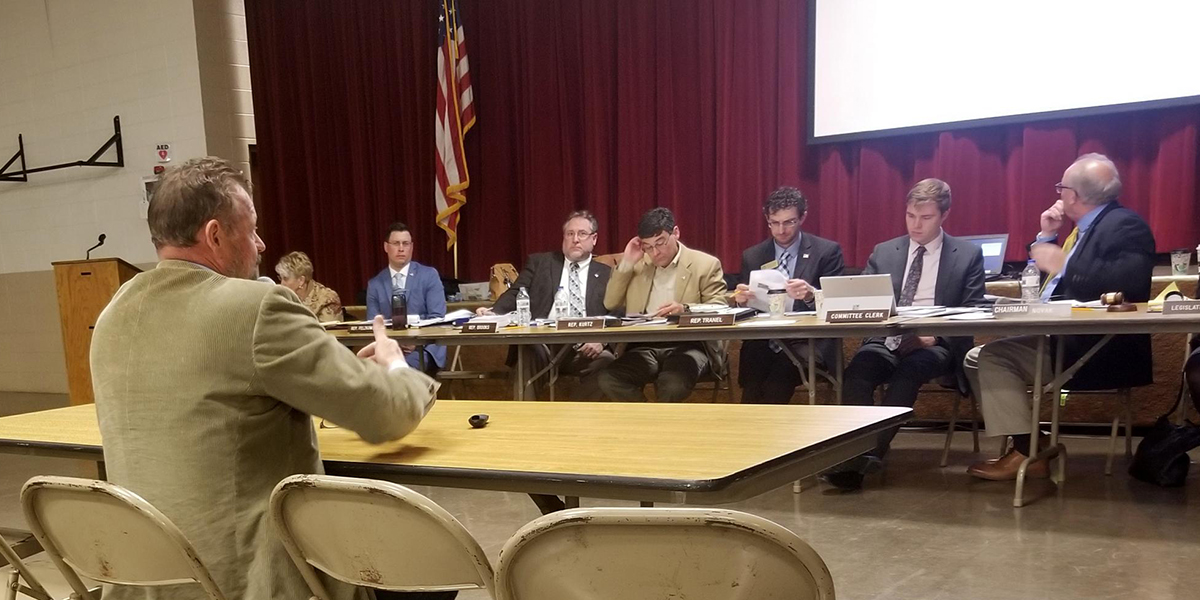
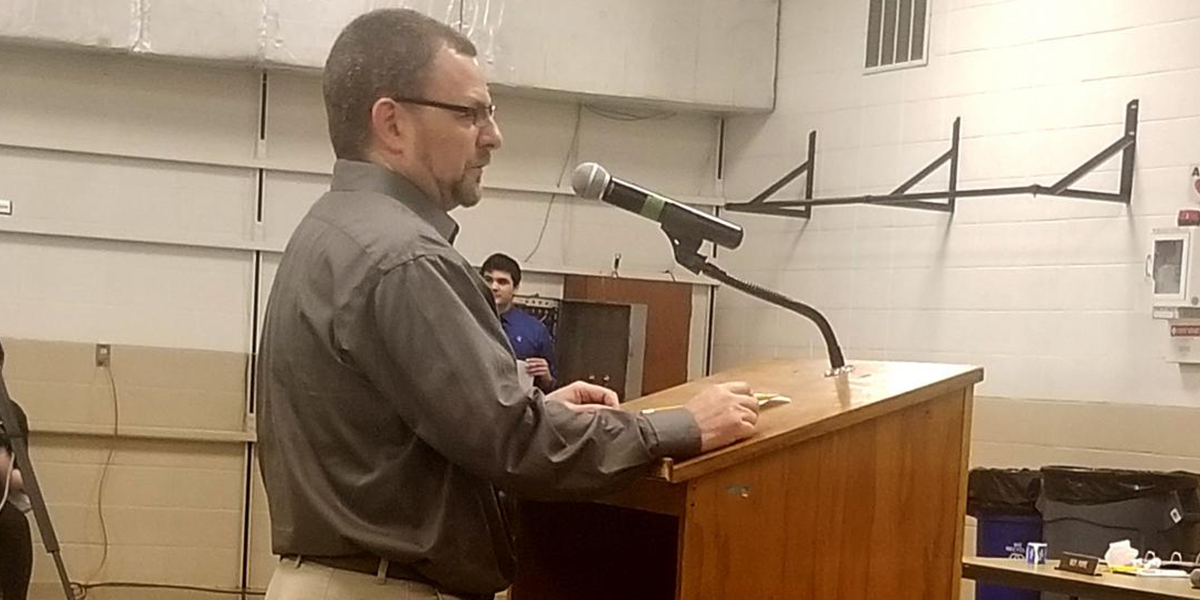
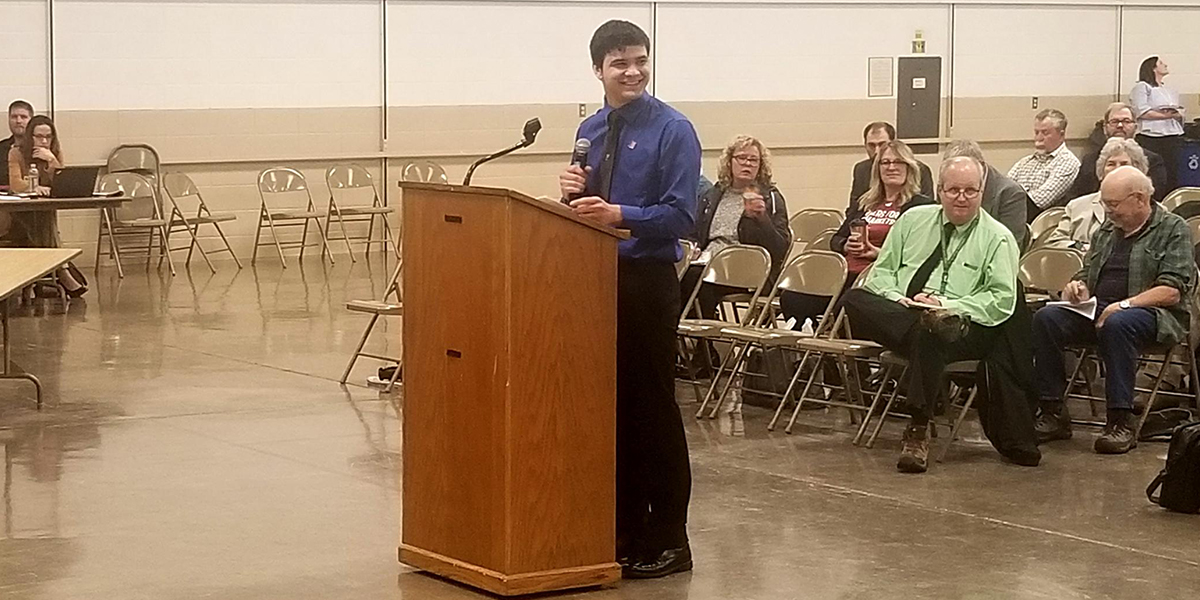
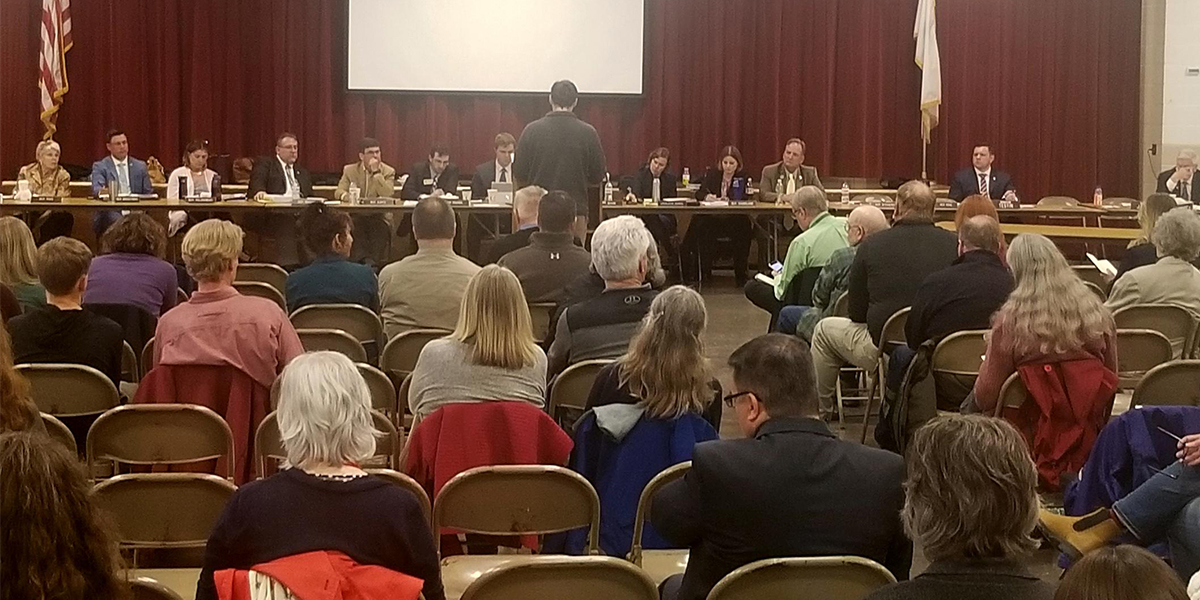
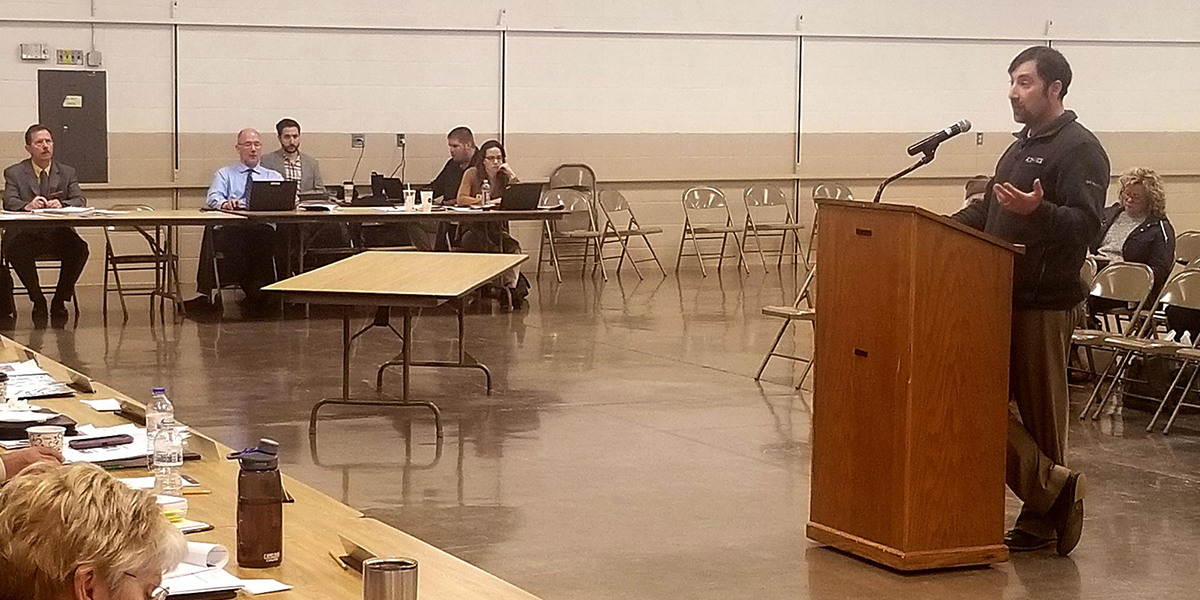
University of Wisconsin-Platteville students, faculty and staff could play large roles in solving water issues in Southwest Wisconsin and beyond if a new initiative is passed.
Several UW-Platteville faculty members spoke in favor of the proposed UW System Freshwater Collaborative of Wisconsin at the Wisconsin Water Task Force public hearing Wednesday in Lancaster, Wisconsin.
The Freshwater Collaborative of Wisconsin would establish the nation’s most significant, integrated, multi-institutional higher education program serving the freshwater economy, according to UW System. A majority of the 13 comprehensive universities would be involved, each tasked with different areas of study. The program would bring 1,000 undergraduate and 400 graduate students to the system, as well as add 100 new faculty and researchers, to address important water issues.
For UW-Platteville, an interdisciplinary major would be created that would bring agricultural, engineering, science, business and liberal arts approaches to studying the Driftless Area’s unique water features.
“Imagine a student that understands the importance of water and environmental quality in the context of making good business decisions and uses data driven science to find solutions that satisfy all stakeholders. These are the type of students that we envision coming out of the UW-Platteville Freshwater Program,” said Dr. Austin Polebitski, associate professor of civil and environmental engineering. “The best part of the Freshwater Collaborative is that each campus has their own identity and story that make up their Freshwater graduates, all equally compelling to the local need. I believe that graduates of our proposed Freshwater Collaborative program will be at the forefront of finding creative and innovative solutions that bring all stakeholders together to move forward.”
The new initiative would make use of current UW-Platteville expertise and facilities, such as Pioneer Farm, the TREES Lab, Memorial Park and other laboratories. The upcoming Boebel Hall renovations will feature a freshwater laboratory as well.
Dr. Kristopher Wright, professor of biology, said, “The Freshwater Collaborative recognizes the water challenges we face require both big picture and local perspectives. Wisconsin’s issues require the ability to work across different areas of expertise and communicate how data informs business, engineering and science. This freshwater collaborative is intended to meet this demand and solidify Wisconsin’s world leadership in freshwater science, technology, entrepreneurship and economic growth.”
Dennis Busch, research manager at Pioneer Farm, also testified at the water studies being done at the university’s 430-acre farm. Student Paul Arellano, who previously presented at the Research in the Rotunda, showed the research he conducted while studying at UW-Platteville Baraboo Sauk County.